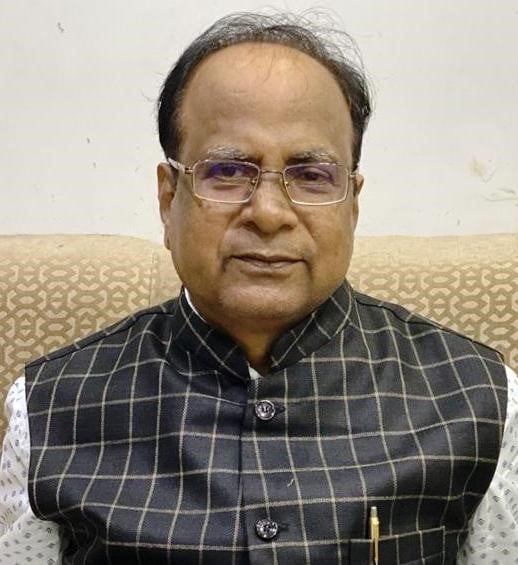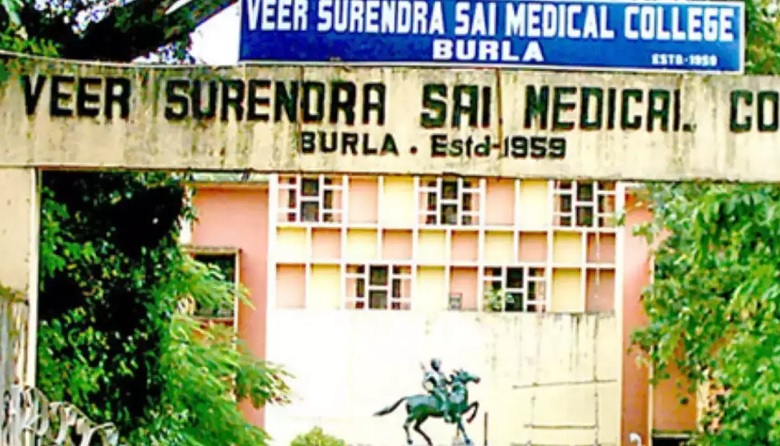THIS CAN HAPPEN: VOLUME XXVIII & XXIX

Dr. Gangadhar Sahoo
IT HAPPENS - VOL - XXVIII
It was an incidence in 1978, when I was in second year of my PG course. We were three post graduate students in our batch. Our duty schedule was very tight. One doing emergency duty was to be available in the department from 8am of a day to the 2pm next day (around 30 hours at a stretch with half an hour change over time after the emergency period is over). One had to manage routine duty on that day, emergency duty from 2pm to 8am next day and then the routine duty up to 2pm. I am narrating here one of my emergency duty experiences.
VSS Medical College Burla, where I was doing my PG course is situated in an isolated place at the foot step of Hirakud dam and around 12 km from Sambalpur. The communication was very poor. So the patient load was very low. The department of Obstetrics and Gynecology of VSS Medical College was the only department in the state which was recognized by Medical Council of India. We the post graduates of OG department were fortunate to get MD degree from a recognized institute. No doubt the patient load was poor, but we were getting varieties and quite a good number of mostly referral cases. So as trainees, we were exposed to different cases of clinical significance and different surgical procedures by renowned surgeons.
The labor room complex consisted of one duty room for nursing staff, one critical care room with four beds, one delivery room with two labor tables and a store room. The critical care room was almost remaining full. That room was equivalent to modern ICU without minimum facilities. But there was no dearth of optimum human care and healing touch.
On emergency duty one clinical tutor (now SR/Assistant Professor), one PG student, two interns, one staff sister, one attendant and one sweeper were being posted. The team of doctors had to look after the critical cases already admitted in labor room, newly admitted cases, indoor cases and attend emergency calls related to Obstetrics and Gynecology from other departments. The department of Obstetrics and Gynecology was around 1km from the main hospital building. It was hell of a job to attend emergency calls at night.
Evening ward round by the unit heads, their unit doctors, staff sisters posted in the ward was the rule. The unit heads of the concerned day of admission go round the labor room to take stock of the situation and wherever required gave their suggestions to the emergency team.
The evening round was unique. I was posted in 1st unit under Prof. Nanda. The round started exactly at 7pm. All the unit doctors would be waiting for the typical horn of his fiat car of Prof. Nanda entering through the gate of the department. One could look at one's wrist watch and check the time. As soon as he entered into the ward with the battalion of followers everyone present in the ward were found alert in action mode. He was starting from bed no.1 and completing his round in labor room without missing any patient. It was his habit to hold the wrist of the patient as if seriously feeling for the pulse, doesn't matter whether it's the radial side or ulnar side. This was the moment of highest satisfaction for the patient. His healing touch and pat on the back of the patient was the best sedative for the postoperative patients. That was working wonders.
In one evening round he entered into the labor room. He enquired about all cases and checked their bed head tickets. He called the clinical tutor/assistant professor on duty to know about the ECLAMPSIA case. Madam on duty explained him that the patient had delivered one hour back; she was under Krishnamenon regimen (the combination of drugs) with features of renal compromise. "How could you know?” asked Prof. Nanda.
"There was no improvement in urine output after delivery even after 2 amples of Lasix given intravenously." replied Madam. He went to the bed of the patient, had a general examination and gently put his hand on the abdomen and asked Madam," Change the catheter." Amusingly when the sister removed the bed sheet cover from the patient, the rubber catheter was found lying on the bed. At that time reusable rubber catheter was used. For indwelling purpose the catheter was put in boiling water for sterilization and connected to a saline attachment tube and the distal end was put into a measuring glass saline bottle. After repeated use the rubber catheter gets damaged and many a time gets blocked.
This case speaks of two things. 1st is the lack of clinical involvement of the senior consultant Madam on duty. Before diagnosing renal compromise and administering Lasix injection she should have examined the case including the drainage system. The casual attitude should be avoided while dealing with life.
The second is the clinical experience of Prof. Nanda. He was a master in clinical science. By putting his hand on the abdomen he must have felt the Lasix induced full bladder. Really it was a great learning experience.
Prof Nanda moved to the next case. It was a case of atonic PPH in shock, delivered outside and after an exhaustive journey reached the labor room two hours before. All necessary steps were taken including maintaining hydration, administration of uterotonics and at last blood transfusion . The condition of the patient had improved dramatically. Prof. Nanda asked, "At present the patient is better. What is your further plan of management? "
Madam replied, "I will continue oxytocin drip in one IV channel and continue blood transfusion in the other. I will also give an intravaginal pack." Prof Nanda laughed and commented, "How do you treat diarrhea? Do you pack the anal canal to stop diarrhea? "Then he stepped out of the labor room. That comment was short but piercing. It still echoes in my ears. What an invaluable comment? That is how we have been trained.
These two incidents described in this anecdote are just the tip of the iceberg. Those words of pearls of wisdom of our Guru had been imprinted in my mind as life lessons. I feel blessed to be his disciple.
IT HAPPENS VOL - XXIX
(My Final MBBS Examination)
DR. GANGADHAR SAHOO.
I appeared my Final MBBS Examination in 1975. That was the era when to pass on the 1st attempt was an exception, not a rule. There was no precedence of passing more than 50% on 1st attempt in any MBBS Examination, what to tell about Final MBBS Examination. Ours was the luckiest batch where, in the subject of FMT (Forensic Medicine & Toxicology) of the 2nd MBBS Examination, the pass result was 100%. It was a record. The reason was Prof. GOPINATH MOHANTY; the HOD of FMT was promoted to the post of Director of Health services. At that time there was single Director Post for Medical Education and Health Services. He was too ecstatic to give our batch 100% pass result.
In the Final MBBS Examination we had to appear four subjects; General Medicine, General Surgery, Obstetrics & Gynecology and Eye ENT (Eye, Ear, Nose, Throat) . In theory examination, there was no gap between examinations. Rather there were two sittings in one day.
In the previous year 62 students had failed in Eye-ENT. Actually Eye-ENT was treated as a minor subject compared to rest of the subjects. So students were giving less importance to that subject. But because of the previous year result students of our batch were more serious about that subject. I was appearing the oral clinical examination in Ophthalmology. Prof Kulamani Mishra was the external examiner. He was very strict, short tempered and merciless in the examination. Students were feeling as if they were facing a tiger not a human being. I was very nervous to face him. He asked me the first question related to the clinical case which I failed to answer rather gave a wrong answer. Then he frowned, "You don't know the ABC of Ophthalmology. Hence forth be serious while answering. I will ask you 10 questions. Each question carries 10 marks. I don't mind whether you score '0' or '100'. Your time starts now." I was trembling in fear, sweating and feeling thirsty. I was praying all God and Goddesses. Fortunately I answered the 1st question correctly. Then I could gather mental strength and as good luck could have it I answered all the questions correctly. Ultimately I passed with Honors in Eye-ENT. It was a great achievement not only for me but for my family, friends and teachers.
Before the final MBBS Examination SCB Medical College had hosted the national conference of Surgery. The venue was for the first time shifted to outside the medical college campus to avoid any disruption by the students. Few months before the conference there was a high tension conflict between students and teachers. There was a police case against a group of students for manhandling a few senior professors including a senior professor of Surgery. Then the college was closed sinedie. In the mean time Prof. Sukumar Das has joined as the HOD of Surgery in SCB Medical College, Cuttack, being transferred from MKCG Medical College, Berhampur. He was the founder Principal of that college. He was a terror there. His name, his voice even his shadow had the power to terrorise anybody in the campus. Unfortunately during the surgery conference there was a fire accident resulting in gutting of a number of stalls. Though the cause of the fire was not known but the student mass was blamed for that accident. Prof. Sukumar Das was very much aggrieved and was in revenge mood against the students. Ours being the examinee batch had to bear all the brunts. On the date of clinical examination Prof Sukumar Das entered into the ward in a military attitude with thumping boots uttering the rudest words against the examinees, "My boots care them." It was inevitable. We were anticipating a massacre.
I was facing the oral examination. Prof Das was the examiner. He showed me a sample of stones to identify. I was wrong in my answer. I identified it as gall stone instead of renal stone. He most probably could not listen it or ignore it. But to my good luck I answered all the questions he asked. Even I answered all questions; the sword of Damocles was hanging on my head till the result was declared.
After few days result was out. Fortunately I had passed in all subjects including Surgery being the 2nd best graduate of our batch with honors in Eye-ENT. In the Surgery alone 70 odd students had failed. With one grace mark 49 students had failed.
So tough was the examination!
These are the few examples of standard of examination in 1970s.The objective of the examination was to produce quality doctors. The medical science does not believe in law of averages. One mistake, one negligence and one wrong in diagnosis and management can cost a life. Therefore the examininers of that era were critical when they found one blunder out of hundred correct things. If that blunder will cost the life of the patient in spite of hundred correct things advised, the examinee is destined to fail.
Hats off to those teachers and examiners. We must learn from them how much they cared for human lives. Now things have changed. Pray God to save our profession.
********


Viewers Comments